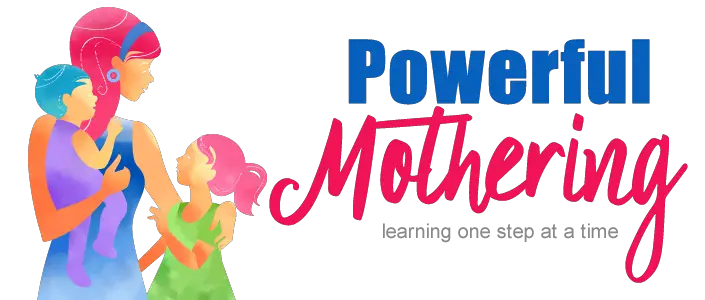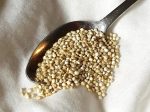This post may contain affiliate links. If you use these links to buy something we earn a commission at no extra cost to you. Powerful Mothering is supported by its audience, thankyou!
It’s Easy To Get Complete Protein From Plants In Your Vegetarian Diet!
Just like everybody else, vegetarians and vegans need complete protein to get all the essential amino acids.
Fortunately, it’s easy to get more than enough protein in a vegetarian diet. If you’ve heard otherwise, it’s not true. If you’re worried about getting enough protein on a vegetarian diet, you may be in for a surprise. The truth is, most people get way too much protein, and vegetarians can easily get more than enough protein in their diet as well. Many people believe that protein is available only from meat and animal sources and we will all fall over dead without animal protein! Unless you’re pregnant or an Olympic bodybuilder, you will likely get more than enough protein without even trying.

Some of the best sources of protein for your vegetarian diet:
- Quinoa and other whole grains
The queen of whole grains when it comes to protein content, is quinoa. Whole grains are also a great source of protein. Unlike many sources of vegetarian protein, quinoa contains all of the essential amino acids, making it a “complete protein”. Other whole grains, including whole grain bread, brown rice, barley are all healthy protein-rich foods for vegetarians and vegans as well. One cup of cooked quinoa provides about 18 grams of protein, and 9 grams of fibre.
- Seitan, Veggie Burgers and Meat Substitutes
Read the label of your meat substitute products and veggie burgers, and you’ll find they are quite high in protein! Most commercial meat substitutes are made from either soy protein, wheat protein (wheat gluten) or a combination of the two. So toss a few veggie burgers on the grill, and watch those daily protein grams add up. One veggie patty contains about 10 grams of protein, and 100 grams of seitan about 21 grams of protein.
- Tofu and other soy products
Soy is tasty in so many ways that you’ll never get bored! You may have tried tofu and soy milk, but what about edamame, soy ice cream, soy yogurt, soy nuts or soy cheese? TVP and tempeh are also protein-rich soy foods you can try. A half a cup of tofu contains 10 grams of protein, and soy milk 7 grams of protein per cup. Many brands of tofu and soy milk are fortified with other nutrients that vegetarians and vegans need, such as iron calcium and vitamin B12. The beauty of tofu is you can add it to just about anything you cook – soups, salads, pasta sauces and stir fries. A great way to add protein to any meal!
- Nuts, Seeds, Nut Butters
Nuts such as peanuts, cashews, almonds and walnuts all contain protein, as do seeds like sesame seeds and sunflower seeds. They’re high in fat, so you won’t want to eat TOO much of them, but they’re great as an occasional snack or post work out snack.
Kids love peanut butter (2 tablespoons contains about 8 grams of protein), and nut butters are delicious too. Try soy nut butter or cashew nut butter for a little variety if you’re bored of peanut butter.
Nuts and seeds are convenient and easy to grab while on the go.
- Beans, Lentils, Legumes
All beans, lentils, and peas are an excellent vegetarian and vegan source of protein – black beans, kidney beans, Indian dhal, vegetarian chili, split pea soup and chickpea hummus. For example, one cup of canned kidney beans contains about 13.4 grams of protein. Beans are one of the most protein-rich foods for vegetarians. They are found almost anywhere.
- Tempeh
Tempeh is made from cooked and slightly fermented soybeans and formed into a patty, but don’t let that put you off. It’s pretty similar to a very firm veggie burger, and, like tofu and seitan, it’s quite high in protein and can be prepared in a number of ways.
Protein content: one serving of tempeh (100 grams) provides about 18 grams of protein (that’s even more protein per gram than tofu!) This does vary by brand. It’s a great alternative for those who don’t like tofu!
- Protein Supplements
What if you are a body builder or are trying to gain some serious muscle? In this case, your protein needs will be higher than us average vegetarians and you may be considering supplementing with protein powders or protein shakes. Be sure to read the label and watch out for cheap fillers in whey and soy protein powders. It’s best to spend and invest in a good quality protein powder. I personally recommend hemp protein powder and green proteins as well.
Protein content: Varies by brand, so read the label.
Protein & Essential Amino Acids In A Vegetarian Diet
Protein is essential for health, along with carbs and fats. Our bodies use amino acids as building blocks, to make protein, for every part: blood, skin, cartilage, muscles and bones, hormones and enzymes. Our bodies can synthesize 16 of these 23 amino acids that we need. That leaves 8 essential amino acids (9 for children), which must come from the foods we eat.
Whenever we eat, our body deposits amino acids into a storage bank, and then withdraws them whenever we need them, so, it’s no longer considered necessary to eat complementary proteins together at one sitting in order to make complete protein. Your body does that automatically, from all the foods that you eat over the course of a day or so. We still need a healthy variety of good protein building foods, so the body can make enough complete proteins to be happy, even though you don’t need to worry about how and when you combine them.
Recap: What You Should Eat To Get Enough Protein In Your Vegetarian Diet:
Each plant food has its own unique amino acid profile, from green leafy veggies to tubers, from barley to quinoa, from lentils to tofu, from macadamias to brazil nuts. By eating a variety of plant foods with ‘incomplete proteins’ throughout the day, we can easily get enough ‘complete protein.’ Vegans and vegetarians can’t help getting all the essential amino acids, through eating different combinations of grains, legumes, nuts & seeds, vegetables & fruit several times throughout the day.
Vegetables and fruits also contribute significant amounts of protein. A one cup serving of avocado, for example, has 3 grams of protein, and a medium potato with skin has 4 grams. Your body puts together amino acids from plant foods to give you complete protein throughout the day. For instance, the amino acids in beans & lentils are balanced by those in grains, nuts and seeds, and vice versa.
Interesting Facts about Protein In Your Vegetarian Diet:
Although protein is certainly an essential nutrient which plays many key roles in the way our bodies function, we do not need huge quantities of it. In reality, we need small amounts of protein. Only one calorie out of every ten we take in needs to come from protein. Athletes do not need much more protein than the general public. Protein supplements are expensive, unnecessary, and even harmful for some people.” – Reed Mangels, Ph.D., R.D., Protein in the Vegan Diet, Vegetarian Resource Group, VRG.org
If you had any doubts, I hope you have a better understanding now of how you can definitely get enough protein in your vegetarian diet!








Leave a Reply